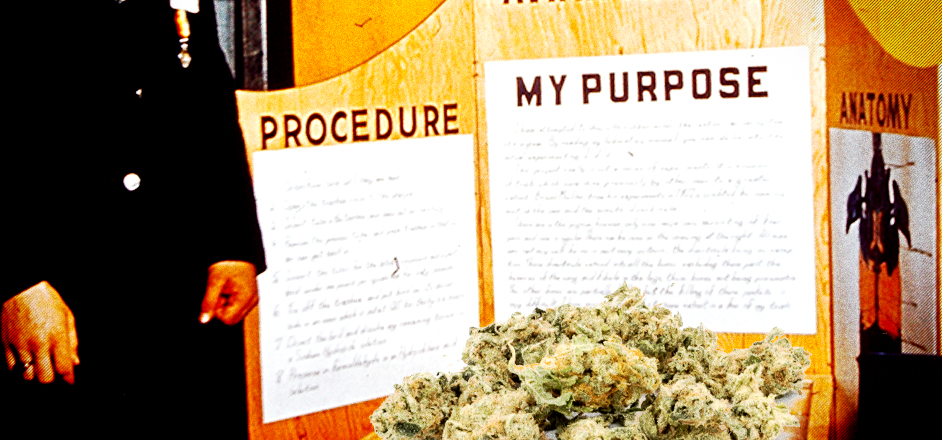As a 16-year-old sophomore in the Catholic high school in Lancaster, Pennsylvania, Daniel Baksh likes basketball, science and some rap music.
"Nice sounding things," Baksh says of it. "I'm not a fan of all the profanity."
And, he says, he sure hasn't used cannabis, either.
Hasn't smoked it, eaten it or vaped it. Says he doesn't know anyone who has.
"I'm not in agreement with the recreational use of cannabis," Baksh says.
But he might be in agreement with the medical use of cannabis — his own science says he should be.
Baksh won the local science fair competition with a complicated experiment that suggests cannabis treats skin cancer, earning first place at the 65th annual North Museum Science & Engineering Fair in Lancaster. And it earned him a spot in at the Intel International Science & Engineering Fair in Pittsburgh in May.
And despite "cannabinoids" being involved, Baksh's conservative Catholic community has been celebrating his accomplishments.
"They understood that it wasn't like recreation use," Baksh says, "so they congratulated me and they understand what I'm doing."
How'd he figure all this out?
"It was basically just logical thinking," Baksh says. "Cannabinoids have been shown to have anti-tumor effects."
Previous research, Baksh explains, has shown that when cannabinoid receptors are blocked, cancer cells proliferate.
"If the cannabinoid was working through the receptors, there would be a decreased proliferation of the cells," Baksh theorized.
So Baksh grew squamous cell carcinoma in a dish, manipulated the cannabinoid receptors to open them up, and watched the cells' growth slow.
Baksh concluded that weed could decrease cell proliferation and growth in skin cancer, and maybe save some lives.
Which begs the obvious question: how'd he score out there in Pennsylvania?
The science teacher doesn't have pot in his supply cabinet.
"It would've been a lot sympler," Baksh says.
So what did Baksh do? Just ask the kid at the next locker over? Stop by the AV club?
No.
"It's a Catholic school," he says. "The administration sweeps the lockers."
He used a clever workaround, using a compound that opens cannabinoid receptors in the same way cannabis does — but is legal. He says it worked just as well as the real stuff.
This is personal: Baksh's grandfather has prostate cancer. Baksh says he hopes cannabis could help him.
Despite having a clear path toward a future in cannabis research, Baksh has no desire or plans to smoke the stuff, ever.
"I'm a Catholic and that goes against my faith," Baksh says, "and I just don't feel the need."
But he's proven one other scientic hypothesis: cannabis has a place in the classroom after all — the science classroom.
And you just know some kid somewhere is going to say: "Mom, I'm smoking this for science!"



Leave a Reply